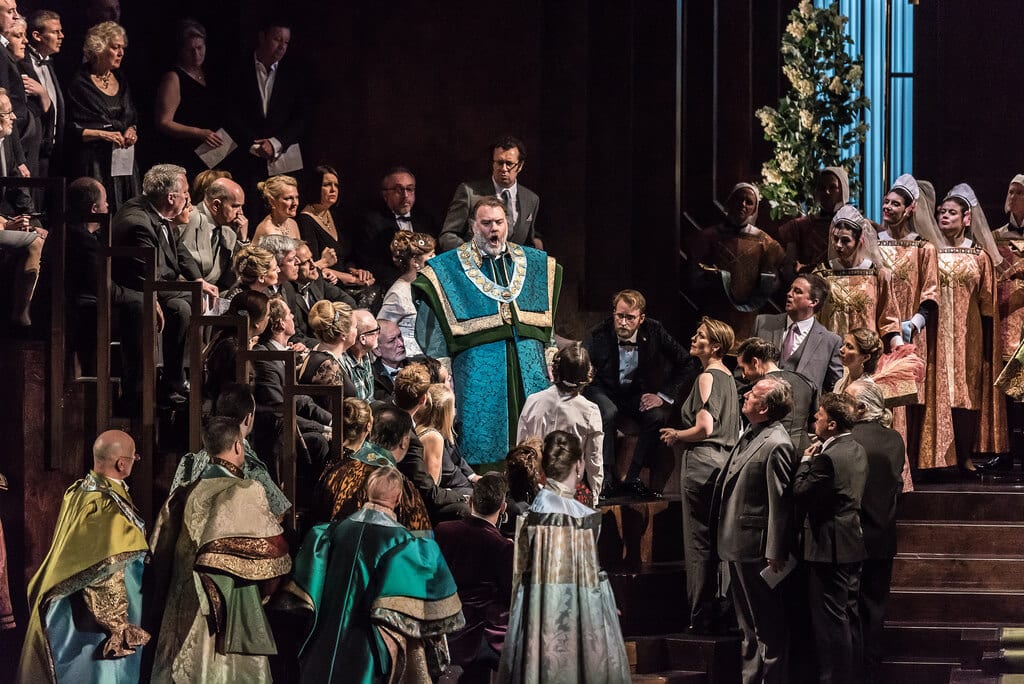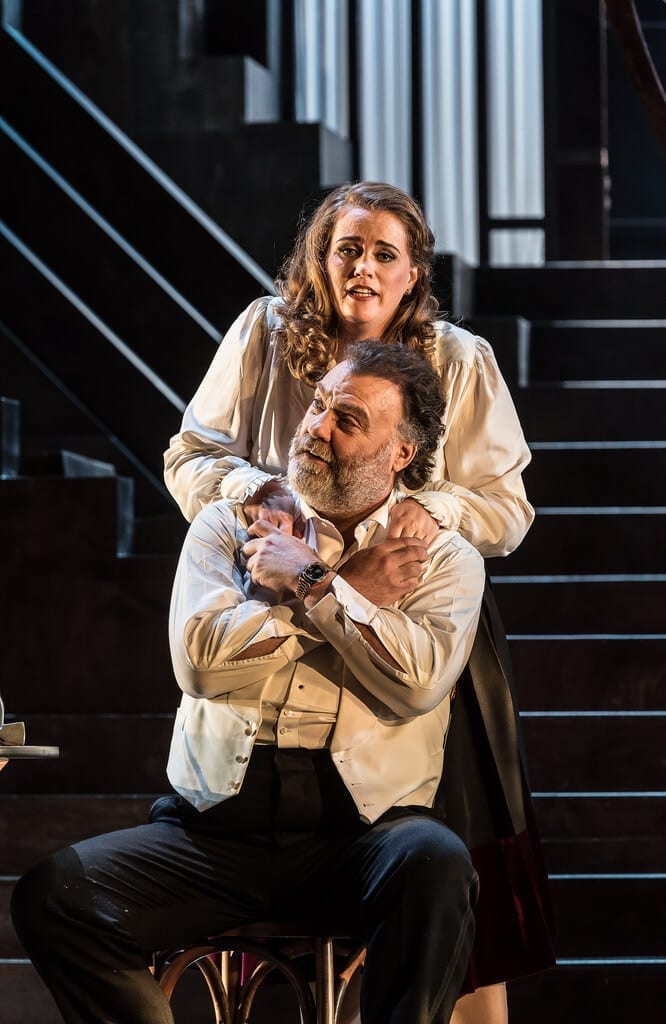Kasper Holten´s new production of Wagner´s Meistersinger for the Covent Garden avoids references to Hans Sachs’ Nürnberg. Instead, the whole show is staged around one somber set, a grand hall covered with dark paneling with an enormous octagonal arch in the middle through which characters come and go. The Meistersingers look more like members of a masonic lodge than professionals and craftsmen meeting after hours to discuss poetry and the arts. Otherwise the story unfolds according to Wagner´s plan, albeit in a contemporary atmosphere.
Walter, an outsider aiming to marry Meister Pogner´s Eva, interrupts a London club-like meeting with a rucksack and…without a tie! The hall’s oppressive atmosphere may be apt in the Lutheran church where Act One takes place, but it’s not quite right in the world of the moonlighted street of the second act. This is where the confrontation erupts between Walter´s rival, Beckmesser, and the poet and shoemaker Hans Sachs. It’s a riot of great proportions among neighbors. Healing will only come outside the city walls during a celebration of art and life in a bucolic meadow, including the spot in which Walter defeats Beckmesser. But the oppressive set persists even there, so Walter´s winning of the song contest does not produce a liberating effect. Art needs to transcend the walls of fundamentalist conservatism in order to be refreshed and renewed. Walter conquers his Eva, but in Holten’s proposal, she is dismayed that, once accepted as a member of the Meister´s guild, her lover will lose his romantic and revolutionary appeal and become part of the establishment she detests. A good twist to the original. Pity about the set.
Although Hitler misused the final scene as a propaganda tool, you do not have to be a psychopath to enjoy Die Meistersinger von Nürnberg. Wagner’s craft is at its best in this evocation of all styles of German music, from the glorious polyphony in the Lutheran style so reminiscent of Bach´s choral works to the expansive melodies of a Mahler or a Richard Strauss. Conductor Antonio Pappano and the orchestra and chorus of the Royal Opera House managed to convince with a solid interpretation of the score.
But something went missing, perhaps the chromatic differentiation and emphasis in interpretation of details through which this epic work achieves intimacy, poetry and warmth. Similarly, the singers were in general good, without being exceptional. Rachel Willis-Sørensen’s (Eva) creamy voice needs more precise and edgy German diction, and Gwen Hughes Jones’ clarion-like projection, like the orchestra, at times sounder rather monochromatic. Johannes Martin Kränzle portrayed his anthological Beckmesser with poise, humour and a supreme awareness of how he wished to interact through every phrase. The deus ex machina in the Meistersinger´s plot is Hans Sachs, the middle aged poet and shoemaker who, after resigning to compete with Walter for the love of Eva, helps him to conquer his girl by training him as a poet. Even if in this production he seemed somehow detached, Bryn Terfel was a convincing Sachs thanks to his robust legato singing, warm timbre and meaningful articulation. Alan Clayton played and sang Sachs’ apprentice David in excellent voice.




